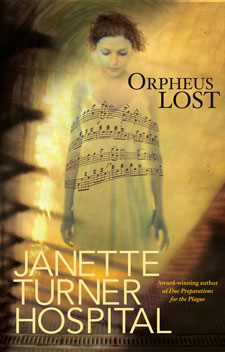Leela is a mathematical genius. She escaped a fundamentalist upbringing in South Carolina, and is now studying acoustics at MIT in Boston. The city is gripped by fear, with suicide bomb attacks a regular occurrence all across the US.
 Despite this, Leela is blissfully happy with her work and her enigmatic lover, Mishka, a musician from Australia. Then something changes. Without warning, Mishka begins disappearing for days at a time. He returns moody, withdrawn, and unwilling to explain. Finally Leela follows him " and finds herself drawn into a terrifying underworld of horror and dark secrets. There she must confront the shadows from her own past if she is to have any hope of saving him.
Despite this, Leela is blissfully happy with her work and her enigmatic lover, Mishka, a musician from Australia. Then something changes. Without warning, Mishka begins disappearing for days at a time. He returns moody, withdrawn, and unwilling to explain. Finally Leela follows him " and finds herself drawn into a terrifying underworld of horror and dark secrets. There she must confront the shadows from her own past if she is to have any hope of saving him.
I did not expect to enjoy this book. Australian Literature (with a capital “L”) is so often pretentious and dull. But Orpheus Lost by Janette Turner Hospital quickly took hold of me, and I was absorbed to the end. The author realises the importance of a strong story, and this plot has more than enough to keep most readers interested.
Ultimately this is a character drama, and the characters are beautifully well-drawn. Even the minor characters are presented with conviction and depth. The author is not afraid to show us the unattractive sides of her heroes, nor the redeeming features of her villains. No-one is entirely good or bad.
The title comes from the story of Orpheus, and the blurb goes so far as to call the novel a “re-imagining” of this ancient myth. According to Greek legend, Orpheus descended into the underworld in order to bring his wife back from the dead. In the same way, Leela descends into an "underworld' of sorts in order to retrieve Mishka. I must say the link felt pretty contrived, and I wonder if it was really necessary.
There were a couple of other aspects of the book I didn’t find entirely satisfying. The lengthy explanation of Mishka’s past felt a little heavy handed. And I thought the conclusion was too hurried and improbable. But this did not detract much from my general enjoyment of the novel.
Between Islamic bombings and Leela’s fundamentalist background, religion forms an important theme in the story. Christians may be a little disappointed to see their faith embodied in the poor example of Leela’s father. To be fair, the author also presents some positive aspects of the father’s religious belief.
Yet neither Leela nor Mishka show much interest in God. Their true "god' is the love they share together, and it is through this that they seek their redemption. This is a common idea in modern literature and film " perhaps the most common idea.
Christians can celebrate God’s good gift of romantic love, but it is not the means of our final redemption. For that, we must look to another Source.





















